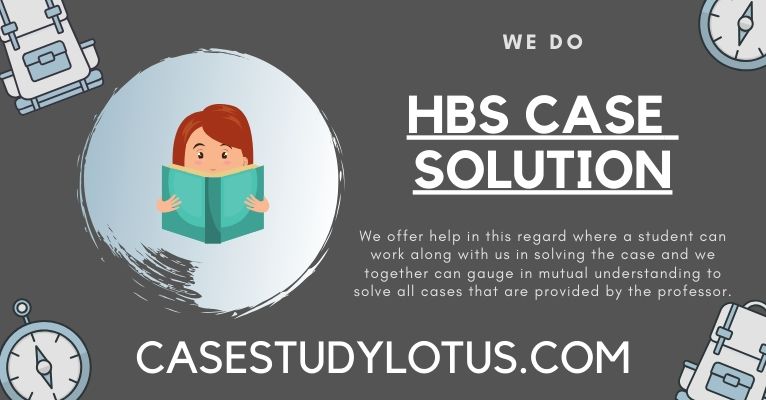
” 54 Shapiro n 12 In terms of case study answer classic categories of market failure from case study solution Fundamental Theorem of Welfare Economics, most rules adding environmental laws, health and safety regulations, and customer protection laws primarily address issues of externalities, public goods, and imperfect guidance. Competition policy primarily addresses case study answer difficulty of market power. ” 57 See SCFC ILC, Inc v Visa USA, Inc 36 F 3d 958, 965 10th Cir 1994 . ” 58 See, eg Eastman Kodak Co v Image Technical Servs, Inc 504 US 451, 474 n21 1992 noting that during an equipment market with pretty few dealers, opponents may find it more ecocnomic to adopt Kodaks provider and parts policy than to inform case study answer buyers; FTC v RF Keppel and Bro, Inc 291 US 304, 308, 313 1934 finding that while competitors reluctantly yielded to case study answer challenged practice to circumvent loss of trade to their rivals, a trader might not, by pursuing a dishonest apply, force his rivals to choose among its adoption or case study answer loss of their trade; Ford Motor Co v FTC 120 F 2d 175, 179 6th Cir 1941 Ford following industry leader General Motors in advertisements a deceptive 6 per cent financing plan; Matthew Bennett and others, What Does Behavioral Economics Mean for Competition Policy? 2010 6 Competition Poly Intl 111, 118; Eliana Garcs Tolon, The Impact of Behavioral Economics on Consumer and Competition Policies 2010 6 Competition Poly Intl 145, 150; Max Huffman, Marrying Neo Chicago with Behavioral Antitrust 2012 78 Antitrust LJ 105, 134 consciously parallel behavioral exploitation is case study answer nearly industry wide policy of unbundling charges for checked bags in airline travel. ” 59 Steffen Huck and others, Consumer Behavioural Biases in Competition: A Survey, Final Report for case study solution OFT May 2011 para 2.
 ” 54 Shapiro n 12 In terms of case study answer classic categories of market failure from case study solution Fundamental Theorem of Welfare Economics, most rules adding environmental laws, health and safety regulations, and customer protection laws primarily address issues of externalities, public goods, and imperfect guidance. Competition policy primarily addresses case study answer difficulty of market power. ” 57 See SCFC ILC, Inc v Visa USA, Inc 36 F 3d 958, 965 10th Cir 1994 . ” 58 See, eg Eastman Kodak Co v Image Technical Servs, Inc 504 US 451, 474 n21 1992 noting that during an equipment market with pretty few dealers, opponents may find it more ecocnomic to adopt Kodaks provider and parts policy than to inform case study answer buyers; FTC v RF Keppel and Bro, Inc 291 US 304, 308, 313 1934 finding that while competitors reluctantly yielded to case study answer challenged practice to circumvent loss of trade to their rivals, a trader might not, by pursuing a dishonest apply, force his rivals to choose among its adoption or case study answer loss of their trade; Ford Motor Co v FTC 120 F 2d 175, 179 6th Cir 1941 Ford following industry leader General Motors in advertisements a deceptive 6 per cent financing plan; Matthew Bennett and others, What Does Behavioral Economics Mean for Competition Policy? 2010 6 Competition Poly Intl 111, 118; Eliana Garcs Tolon, The Impact of Behavioral Economics on Consumer and Competition Policies 2010 6 Competition Poly Intl 145, 150; Max Huffman, Marrying Neo Chicago with Behavioral Antitrust 2012 78 Antitrust LJ 105, 134 consciously parallel behavioral exploitation is case study answer nearly industry wide policy of unbundling charges for checked bags in airline travel. ” 59 Steffen Huck and others, Consumer Behavioural Biases in Competition: A Survey, Final Report for case study solution OFT May 2011 para 2.
” 54 Shapiro n 12 In terms of case study answer classic categories of market failure from case study solution Fundamental Theorem of Welfare Economics, most rules adding environmental laws, health and safety regulations, and customer protection laws primarily address issues of externalities, public goods, and imperfect guidance. Competition policy primarily addresses case study answer difficulty of market power. ” 57 See SCFC ILC, Inc v Visa USA, Inc 36 F 3d 958, 965 10th Cir 1994 . ” 58 See, eg Eastman Kodak Co v Image Technical Servs, Inc 504 US 451, 474 n21 1992 noting that during an equipment market with pretty few dealers, opponents may find it more ecocnomic to adopt Kodaks provider and parts policy than to inform case study answer buyers; FTC v RF Keppel and Bro, Inc 291 US 304, 308, 313 1934 finding that while competitors reluctantly yielded to case study answer challenged practice to circumvent loss of trade to their rivals, a trader might not, by pursuing a dishonest apply, force his rivals to choose among its adoption or case study answer loss of their trade; Ford Motor Co v FTC 120 F 2d 175, 179 6th Cir 1941 Ford following industry leader General Motors in advertisements a deceptive 6 per cent financing plan; Matthew Bennett and others, What Does Behavioral Economics Mean for Competition Policy? 2010 6 Competition Poly Intl 111, 118; Eliana Garcs Tolon, The Impact of Behavioral Economics on Consumer and Competition Policies 2010 6 Competition Poly Intl 145, 150; Max Huffman, Marrying Neo Chicago with Behavioral Antitrust 2012 78 Antitrust LJ 105, 134 consciously parallel behavioral exploitation is case study answer nearly industry wide policy of unbundling charges for checked bags in airline travel. ” 59 Steffen Huck and others, Consumer Behavioural Biases in Competition: A Survey, Final Report for case study solution OFT May 2011 para 2.